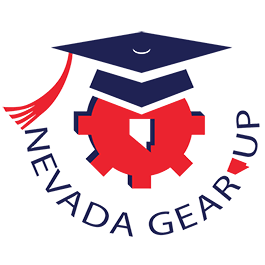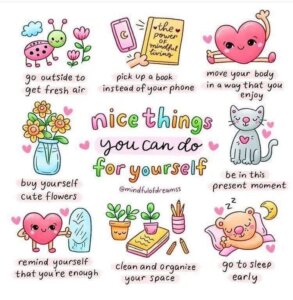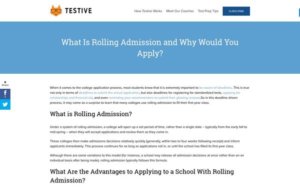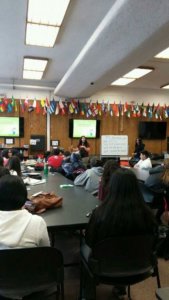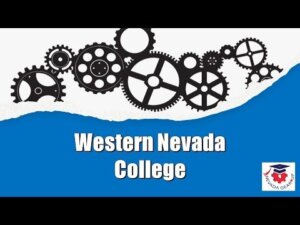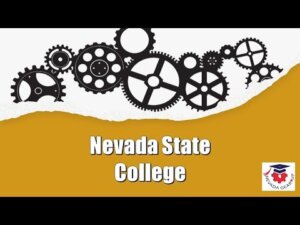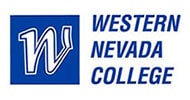 Our blog this month has been written by Arian Katsimbras. Arian is an Education Programs Professional working for GEAR UP at the Nevada Department of Education.
Our blog this month has been written by Arian Katsimbras. Arian is an Education Programs Professional working for GEAR UP at the Nevada Department of Education.
In the early months of the pandemic, after ushering a hundred students through the end of their freshman year and into the global uncertainty that galvanized our lived experiences, I exited my role as an English professor with a foreboding feeling that our students were entering an uncharted existential and economic landscape. And while it will likely take years before we understand the full breadth of the pandemic’s impact on all levels of education, nothing appears more certain than urgent duty student and community advocates must possess to imagine innovative and mobilizing pathways to student success and college preparedness.
GEAR UP supports many things: college readiness, academic achievement indicators, student support services, counseling initiatives, to name an understated few. As GEAR UP’s industry to school liaison, I am afforded the incredible opportunity to meet with nontraditional advocates for student success and construct a business network that adequately reflects and addresses the barriers to graduation, access to higher education, and fundamental industry training and access.
With the development of a robust network of industry partnerships in Nevada, we can circumnavigate socio-economic barriers and explore immense potential for promoting equity and providing opportunities for economically disadvantaged students. By forging collaborations between educational institutions and industries, these partnerships can significantly benefit students facing historically entrenched challenges and create avenues for innovation in education.
The relationship between high school graduation rates, industry partnerships in high schools, college access, and labor market access is a complex intersection that significantly impacts longitudinal educational and employment landscapes. By navigating statistical data provided by the Department of Labor and the Department of Education, we can unravel the complex dynamics at play.
- High School Graduation Rates and Labor Market Outcomes: Department of Labor statistics illuminate the strong association between high school graduation rates and labor market outcomes. Individuals who successfully complete high school are more likely to secure employment, experience lower unemployment rates, and enjoy higher wages compared to their peers who do not obtain a diploma. High school graduation serves as a crucial foundation for accessing desirable employment opportunities.
- Business Partnerships in High Schools: Collaborative partnerships between high schools and industry leaders carry significant potential to enhance students’ college access and informs meaningful access to employment. Department of Education statistics reveal that when industries actively engage with high schools through internships, apprenticeships, CTE/work-based learning, and mentorship programs, students gain practical skills and industry-specific knowledge, powerfully bridging the gap between classroom learning and real-world work experiences. Such partnerships foster a seamless transition from education to employment.
- College Readiness and Labor Market Success: The Department of Education emphasizes that college readiness plays a pivotal role in shaping student experience while in college, and bolstering their access to careers that are high-order blooms of their degree tracks. Students equipped with the necessary academic, cognitive, and non-cognitive skills are more likely to enroll in and complete higher education, leading to improved employment prospects and higher earnings potential. College readiness equips students with critical thinking abilities, problem-solving acumen, and effective communication skills sought after by employers across various industries.
- Policy Implications and Interventions: To bolster high school graduation rates, promote business partnerships, and enhance college readiness, policymakers can implement targeted interventions. This includes fostering stronger collaborations between educational institutions and industry leaders, establishing structured career pathways, expanding work-based learning opportunities, and integrating industry-relevant curricula. Additionally, providing comprehensive college and career counseling, mentorship programs, and access to rigorous coursework can further enhance college readiness among students.
Industry partnerships in Nevada education hold great promise for economically disadvantaged students. By providing real-world relevance, access to resources and expertise, career pathway exploration, and networking opportunities, these partnerships empower students to overcome barriers and achieve educational and career success. As Nevada continues to foster and expand industry partnerships, it is vital to prioritize the inclusion of economically disadvantaged students, ensuring equitable access to the benefits and opportunities these partnerships offer. By doing so, we can create a more inclusive and prosperous educational ecosystem that uplifts all students, regardless of their socioeconomic backgrounds.
